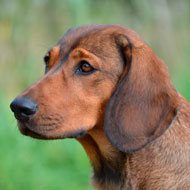Charities respond to 'heartbreaking' article

The RSPCA said the article sends 'a dangerous and very irresponsible message to children'. (stock photo)
Animal charities have responded to a Daily Mail article that prompted outrage among dog lovers. In it, the author Shona Sibary admits: 'I get rid of dogs as soon as they stop being cute puppies'.
She claims to have got rid of four dogs in as many years, for various reasons.
Husky cross Juno was said to have been rehomed in 2012 as he dug in the garden and leaped 6ft fences; Rhodesian ridgeback Albus became aggressive towards other dogs; dachshund Pippa killed pheasants, ducks, doves and a heavily pregnant sheep; and Labrador-collie cross Cookie, with Pippa, killed a breeding ram.
Shona now owns whippet cross cocker spaniel, Clover, who was named by Shona's young daughter.
Some have questioned the truth of the article, however, as it contradicts a previous article Shona wrote for the Daily Mail in 2012: http://www.dailymail.co.uk/news/article-2081502/Stray-dogs-There-345-day-hard-dog-loving-home.html
The RSPCA called her latest article 'heartbreaking', saying it sends 'a dangerous and very irresponsible message to children'.
The Dogs Trust, however, urged animal lovers to 'harness the outrage this article has prompted and turn it unto something positive for dogs'.
In a statement, the charity said: 'We urge everyone who has been angered, appalled or disgusted by her attitude to visit our rehoming website, sponsor one of our dogs, volunteer or make sure everyone you know who is thinking of getting a dog, thinks Rescue First.'
The charity has invited Shona, her family and the Daily Mail, to visit one of its 20 rehoming centres. Its training and behaviour team are keen to show her the damaging impact of early abandonment on some dogs.
Taking a similar approach, the Kennel Club said the article is a good example of 'what not to do' - pointing out that Shona buys breeds that do not fit her lifestyle, from irresponsible breeders and does not see the litter with their mother.



 The Veterinary Medicines Directorate (VMD) is inviting applications from veterinary students to attend a one-week extramural studies (EMS) placement in July 2026.
The Veterinary Medicines Directorate (VMD) is inviting applications from veterinary students to attend a one-week extramural studies (EMS) placement in July 2026.